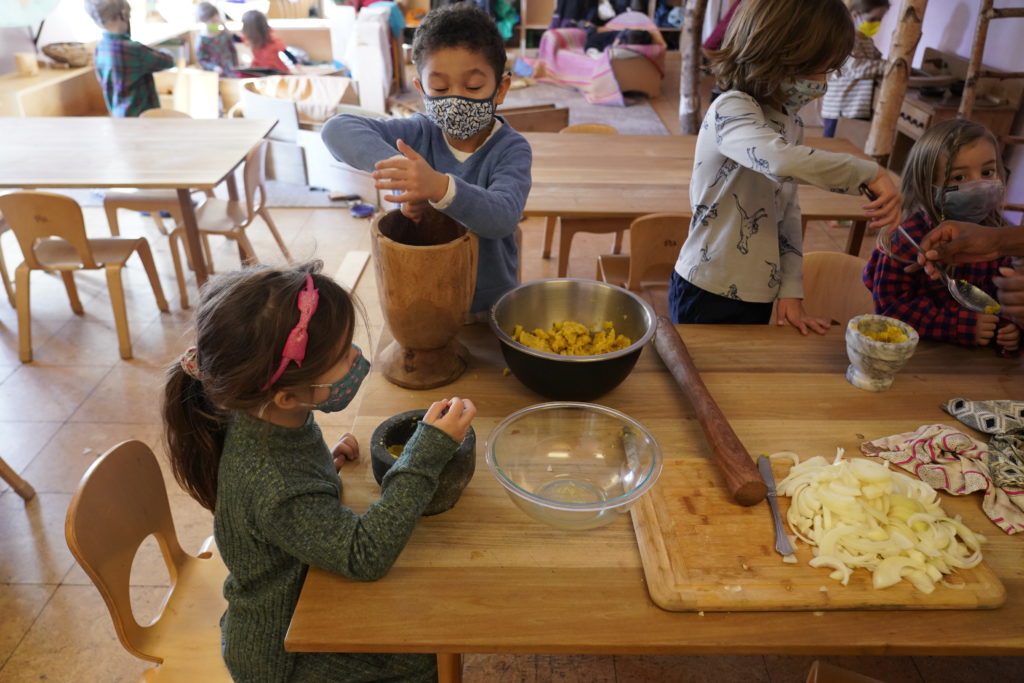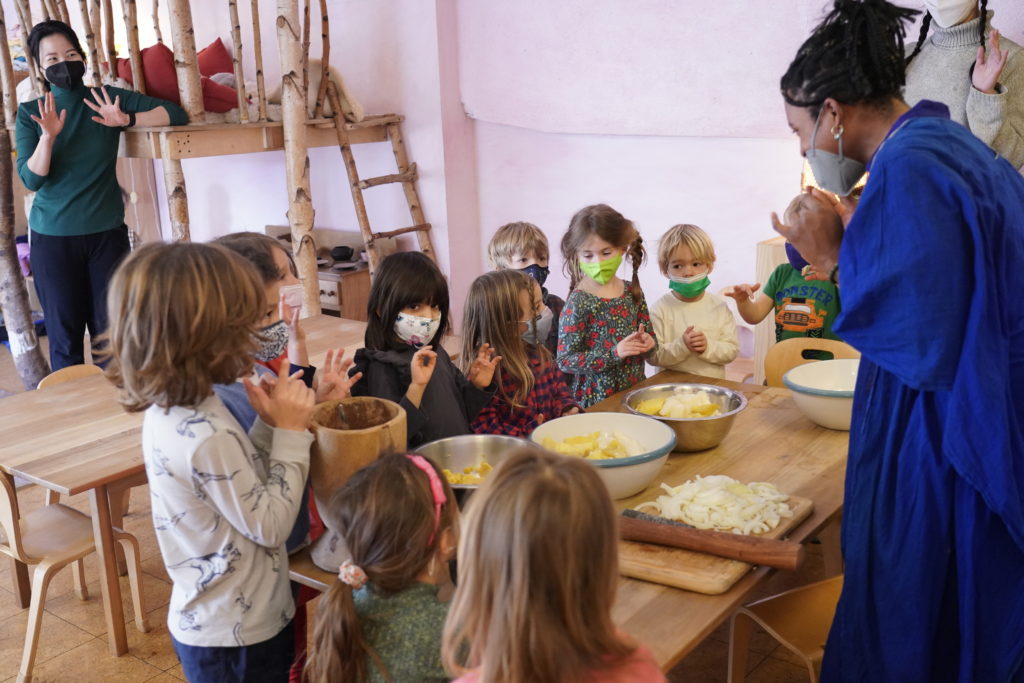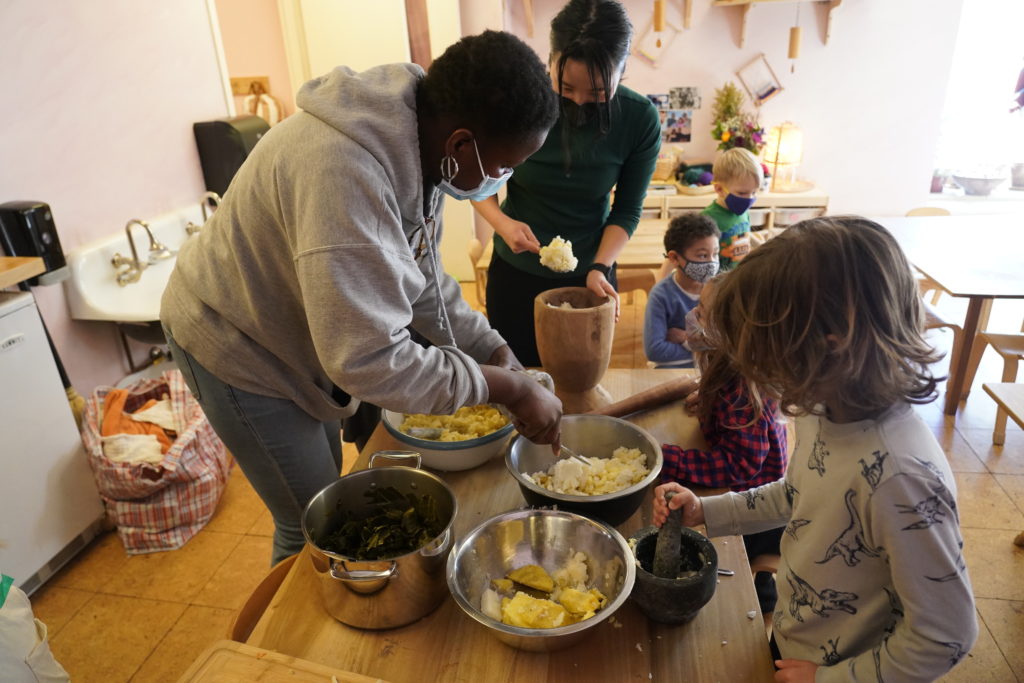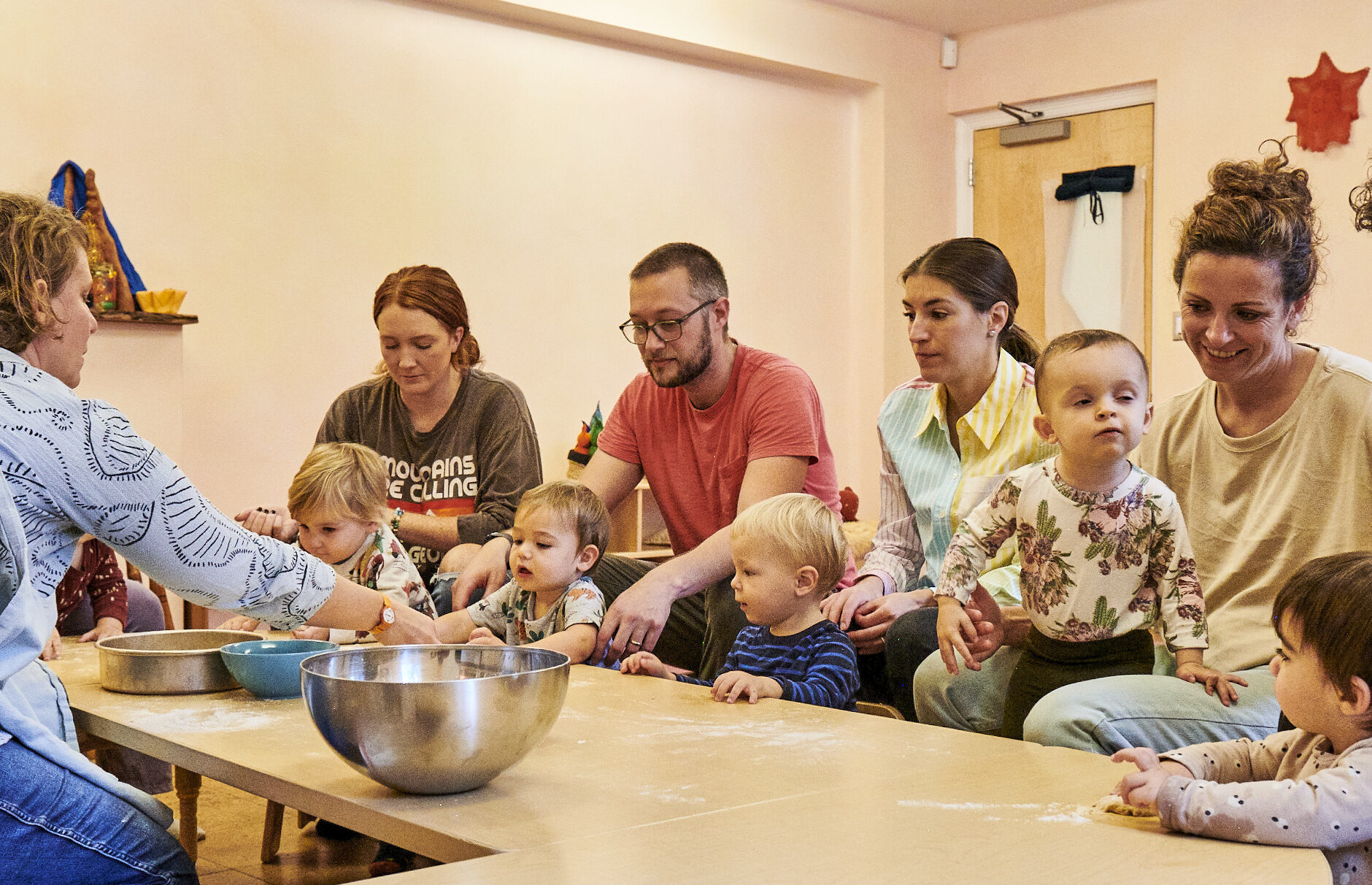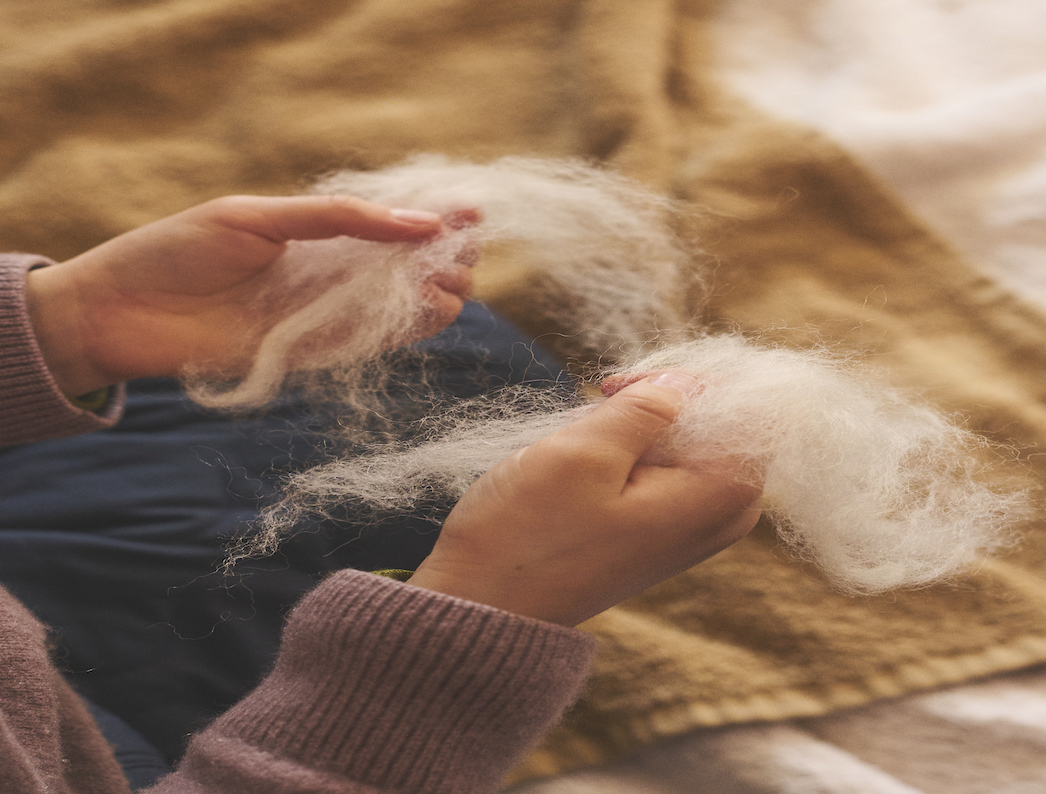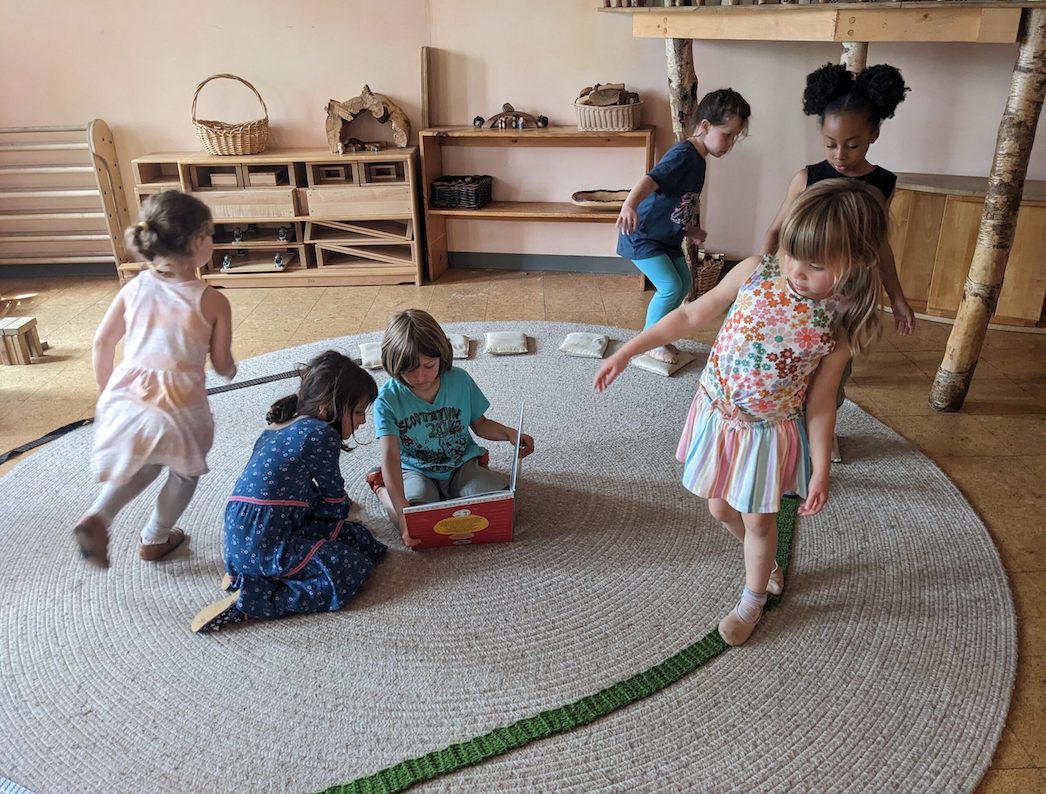A foundational component of Early Childhood at Brooklyn Waldorf School is cooking; working together to make and consume a meal in community, centering each day around ritual, exploring different tastes and improving gross and fine motor skills. During Black History Month, EC students learned about traditional Nigerian dishes and their ingredients, as they prepared and ate Potash (yam porridge) and plantain and pounded yam fufu. Teacher Laith led the way with their knowledge and family recipes and the kids delighted in pounding the plantain and yam together using mortars and pestles of different sizes and materials and tearing the collard greens.
Teacher Laith taught the children about yam, king of crops. The Igbo celebrate Ike ji (the New Yam festival) in late August to commemorate the new harvest and abundance. When yam is pounded, the end product is called fufu.
The EC students particularly enjoyed interacting with the mortar and pestle. Its Igbo name is odo/Ikwe/okwa na’ aka or nwa odo’, meaning the mortar and its hand or child. Historically, it is said that during the Biafran war in Nigeria, babies were hidden under the mortar to protect them.
Please see below for more details on the history and importance of the yam, palm oil, and the entire recipe Teacher Laith has so generously shared with the BWS community. Let us know if you try it!
Teacher Laith’s Recipe & Notes
Yam is the king of crops. The Igbo celebrate Ike ji, our the New Yam festival, in late August to celebrate the new harvest. Around this time all the yam of the previous year must be discarded or consumed and the new crop celebrated. The festival celebrates abundance. Yam also known as cocoyam, African yam, cassava or yuca is a carbohydrate root vegetable with great nutritional value. It is native to West Africa as well as South America. Traditionally it is boiled until soft and then pounded in a large mortar and pestle into a soft, pliable texture similar to ‘mashed potatoes.’ This end product is called foo-foo and is a type of swallow.
Swallow is used to describe a large group of soft starches that accompany soup dishes. Swallow or foo-foo can also be made of semolina, sour cassava or gari and, primarily in contemporary Western/ diasporic contexts, oatmeal. It is called swallow because the smooth and soft food can be eaten without chewing though this is sometimes necessary or enjoyable. It is traditionally eaten with the hands.
Palm Oil is a vegetable fat/oil derived from the palm fruit/kernel. “Africans have sustainably cultivated and benefited from these trees naturally growing in the region. Nigeria was the world’s leading producer of palm oil during the period of British rule, while West Africa was the centre of the palm industry.” Large-scale harvesting by international firms of the fruit has resulted in major deforestation, but local manufacturers are shifting the supply chain to honour the environment and cultural significance of the resource to the continent.
Today we will be exploring boiled yam and making one of my favourite childhood meals, Potash, or yam porridge.
Serves approx. 30
-4 yams (approx 4kg)
-300g spinach
-tarragon
-25g of palm oil
-3 maggi cubes
-capsicum
-crayfish/ bonito or substitute shiitake dashi
-“nsukka” cayenne pepper
-coriander seeds
-anise
-tomato purée
-fresh tomato
-dehydrated tomato
-lemon juice
-lemon zest to taste
-onion
–(optional) garlic
-white pepper
- Peel the the yam, cut into large chunks then set aside to sit in lightly salted cool water
- Grind the coriander seeds and anise
- Puree the fresh tomato, onion, garlic
- Mince the pepper
- Bring yams to boil in diluted shiitake dashi and add chopped capsicum — approx 25 minutes
- Add slivered onion and palm oil to low heat, bring to simmer then add purée, spice blend, Maggie powder and white pepper. Sauté for 5-10 minutes
- Once the yams are soft, a fork should easily slice through them revealing a slightly flakey and fibrous texture, discard part of the broth and combine with aromatics
- Add spinach and tarragon and combine
Teaching this recipe offers the opportunity for children to be introduced to the calabash, mortar and pestle (odo/Ikwe/okwa na’ aka or nwa odo’ meaning the mortar and its hand or child), palm kernel, and yam.


